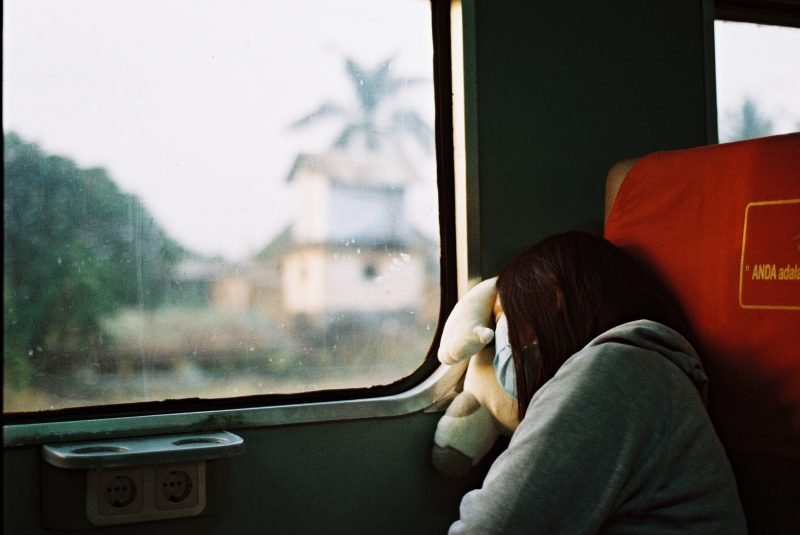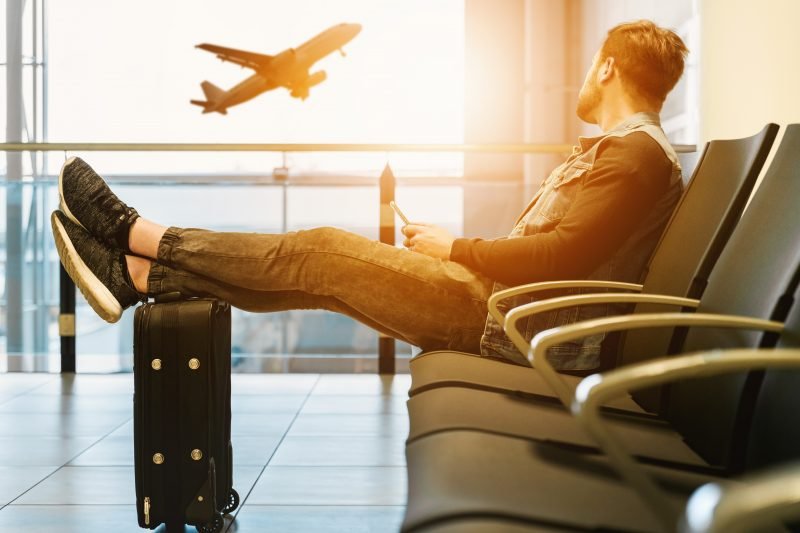Last Updated on
How to Get Better Sleep When You Travel? Amazing food, interesting people, beautiful sites—we could list the benefits of travel for hours. But, there’s one part of it most of us could do without—lack of sleep. Sleep problems are an inherent part of traveling whether you’re staying close to home or galloping across the globe. Despite the challenges, there are ways to get the deep restful sleep needed to fully fuel your next adventure.
Establish a Sleep Schedule
If you travel far enough from home, usually more than two time zones, your body might struggle with jet lag. The human body uses the Earth’s day/night pattern to establish a regular sleep/wake schedule. Drastic changes in the timing of light exposure can throw your body for a loop, throwing off the timing of your sleep cycle while your body catches up. Greater time difference will obviously create greater challenges to readjust.

One of the best and most effective ways to help your body get in sync is to jump right into a regular schedule, according to local time. Stay busy that first day. That may mean staying up for a full 24 hours so that you go to sleep in the evening rather than sleeping all day. If you have to, buy advance tickets to events, but keep your body going until the evening rolls around.
Read more: How to prevent jet lag.
Eat Your Meals at Regular Times
Your meal timing influences your sleep cycle. As soon as you arrive, get on a regular eating schedule according to local time. Eat your meals at roughly the same time each day. This both helps the brain recognize your daily routine and gets your digestive track in sync so you’re not waking in the middle of the night to use the bathroom.
Bring the Comforts of Home
Both adults and children can struggle to sleep on an unfamiliar mattress even if it’s comfortable. Your body relies on consistency and familiarity to relax and correctly time the release of sleep hormones. A comfort item or two that you associate with sleep can help while you’re on the road. A blanket, travel pillow, or candle that smells or feels like home can help your body adjust. Children may also benefit from a playlist or white noise machine that can block out strange sounds.
Sleep Supplements
Sleep supplements come in different forms, but one of the most popular is over-the-counter melatonin. Melatonin is a key sleep hormone naturally produced by the body. If you’re fighting jet lag, your melatonin levels can be off for a few days. A supplement can give you a boost and move your sleep cycle closer to where you want it to be. It takes roughly five hours for the body to metabolize melatonin so you need to take your supplement long before bedtime.

Other sleep supplements may come in the form of a multivitamin specifically formulated for sleep. These vitamins usually contain magnesium, potassium, calcium, and other nutrients used by the body to manufacture or regulate melatonin and related sleep hormones.
Go Outside
Sunlight naturally suppresses sleep hormones and helps regulate the sleep cycle once it starts to get dark. Spend as much time outside as you can, especially in the first few days of your trip. This helps your circadian rhythms adjust to local time.
Conclusion
You have to be mindful of your body’s needs when you’re away from home. Make a plan so that when you arrive you’re already prepared for jet lag and other sleep challenges. Sticking to the plan will create the foundation you need to fully experience and immerse yourself in your travels and get better sleep patterns.

Hi there! My name is Jenny, and I’m a travel writer who is endlessly curious about the world and always on the hunt for the next best-kept travel secret. My expertise lies in creating destination guides that enable you to travel smarter and especially if you travel solo.
My bylines have appeared on blogs, travel sites, and content agencies, and I’m always ready for the next adventure (and next great caffeine fix). In between assignments, you can find me trawling through a bazaar, sampling street food, or getting lost in an unfamiliar metropolis by choice.

